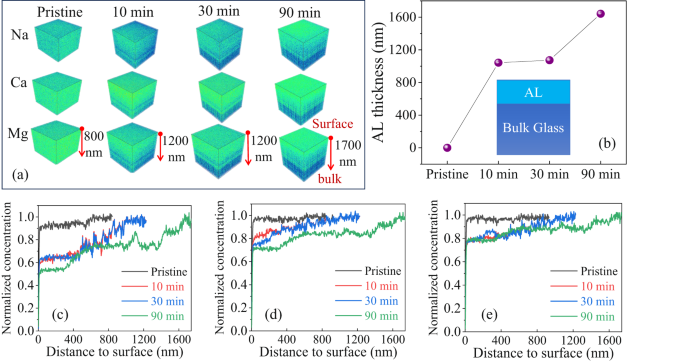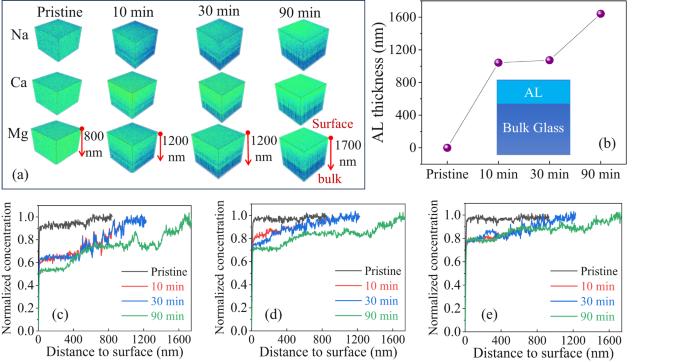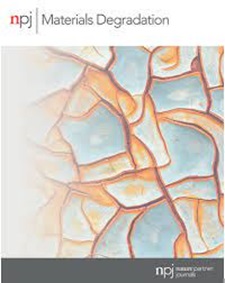Impact of the aqueous corrosion induced alteration layer on mechanical properties of pharmaceutical glasses
IF 6.6
2区 材料科学
Q1 MATERIALS SCIENCE, MULTIDISCIPLINARY
引用次数: 0
Abstract
It is known that network modifying ions (such as alkali or alkaline earth ions) make glasses susceptible to aqueous corrosion, resulting in the alteration of their surface layers. However, the effect of the altered layers on the mechanical properties of glasses has not been well understood. In this work we study this effect using the pharmaceutical boroaluminosilicate (BAS) glasses as objects by performing nano- and macroscale mechanical tests. The results show that extending the corrosion time increases the thickness of the alteration layer of the BAS glass. The water-related species in the alteration layer lowers the nanohardness, the reduced modulus, the nanowear resistance and Vickers hardness. The corrosion-induced “silica-like” structure in alteration layer benefits the densification of the subsurface caused by nanoindentation and nanowear, and thereby enhances the fracture toughness of the BAS glass. The correlation between the water content in the alteration layer and the mechanical properties has been revealed. This work is instrumental in the design of the next generation of pharmaceutical glasses with higher toughness.


水腐蚀引起的改变层对药用玻璃机械性能的影响
众所周知,网络改性离子(如碱或碱土离子)会使玻璃容易受到水腐蚀,从而导致其表层发生变化。然而,这些改变的表层对玻璃机械性能的影响尚未得到很好的理解。在这项工作中,我们以药用硼铝硅酸盐(BAS)玻璃为对象,通过进行纳米和宏观机械测试来研究这种影响。结果表明,延长腐蚀时间会增加 BAS 玻璃蚀变层的厚度。改变层中与水有关的物种降低了纳米硬度、降低了模量、纳米耐磨性和维氏硬度。腐蚀引起的改变层中的 "类二氧化硅 "结构有利于纳米压痕和纳米磨损引起的次表层致密化,从而提高了 BAS 玻璃的断裂韧性。研究揭示了改变层中的含水量与机械性能之间的相关性。这项工作有助于设计具有更高韧性的下一代药用玻璃。
本文章由计算机程序翻译,如有差异,请以英文原文为准。
求助全文
约1分钟内获得全文
求助全文
来源期刊

npj Materials Degradation
MATERIALS SCIENCE, MULTIDISCIPLINARY-
CiteScore
7.80
自引率
7.80%
发文量
86
审稿时长
6 weeks
期刊介绍:
npj Materials Degradation considers basic and applied research that explores all aspects of the degradation of metallic and non-metallic materials. The journal broadly defines ‘materials degradation’ as a reduction in the ability of a material to perform its task in-service as a result of environmental exposure.
The journal covers a broad range of topics including but not limited to:
-Degradation of metals, glasses, minerals, polymers, ceramics, cements and composites in natural and engineered environments, as a result of various stimuli
-Computational and experimental studies of degradation mechanisms and kinetics
-Characterization of degradation by traditional and emerging techniques
-New approaches and technologies for enhancing resistance to degradation
-Inspection and monitoring techniques for materials in-service, such as sensing technologies
 求助内容:
求助内容: 应助结果提醒方式:
应助结果提醒方式:


